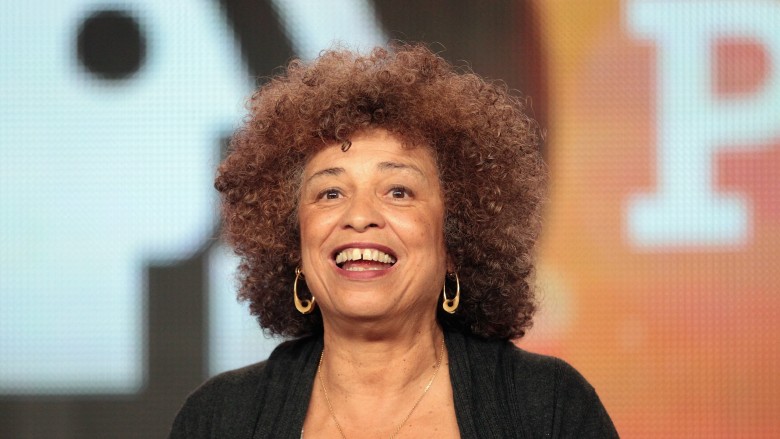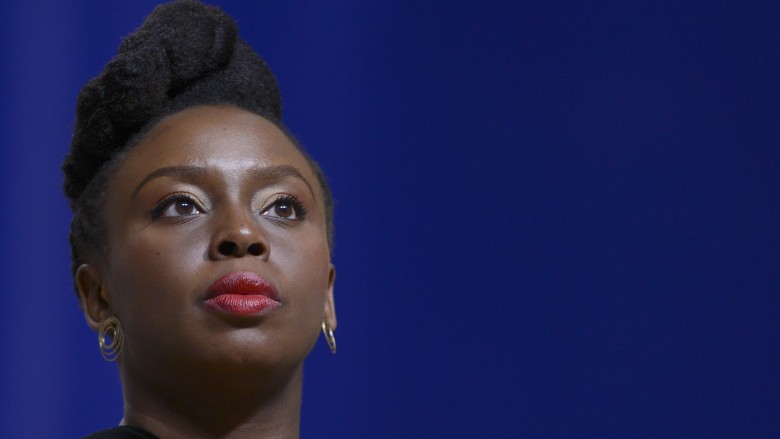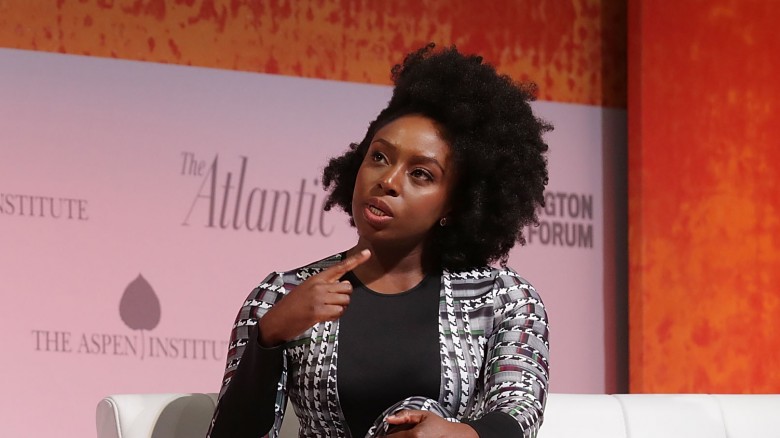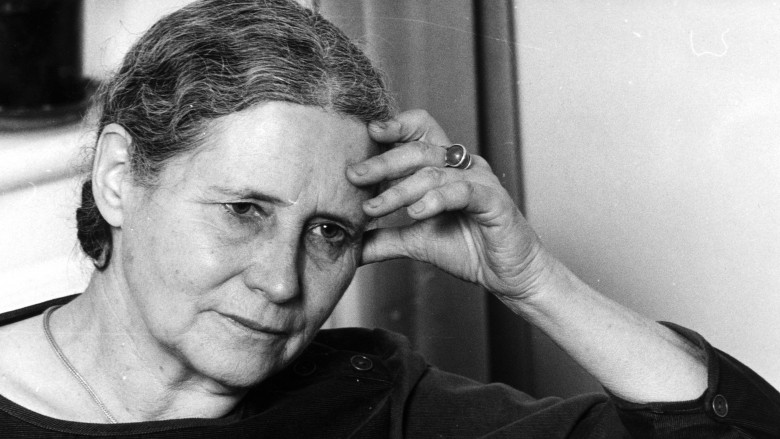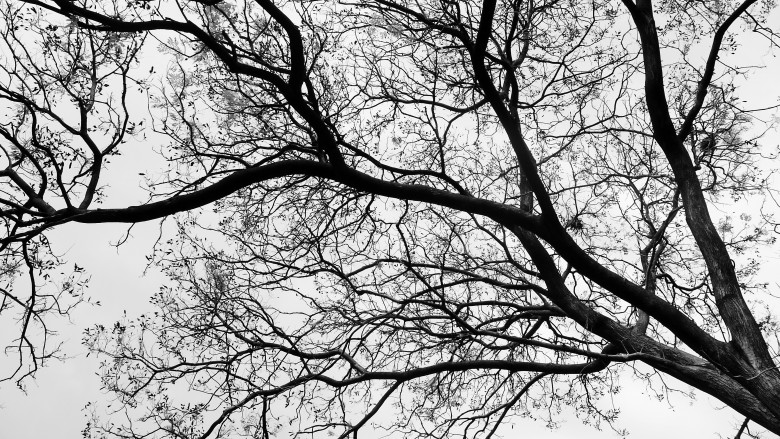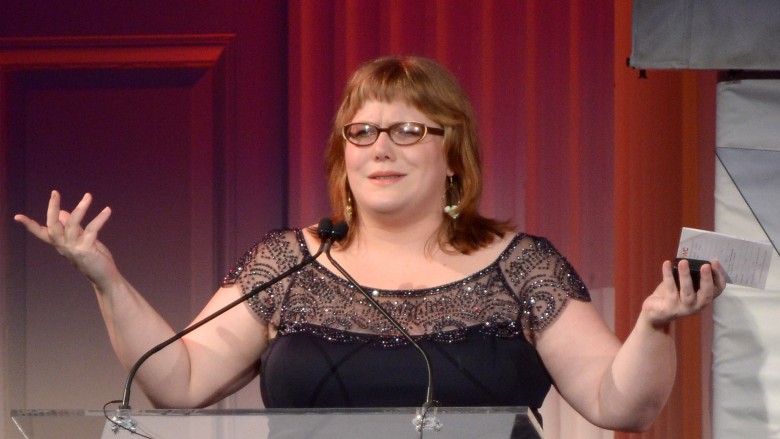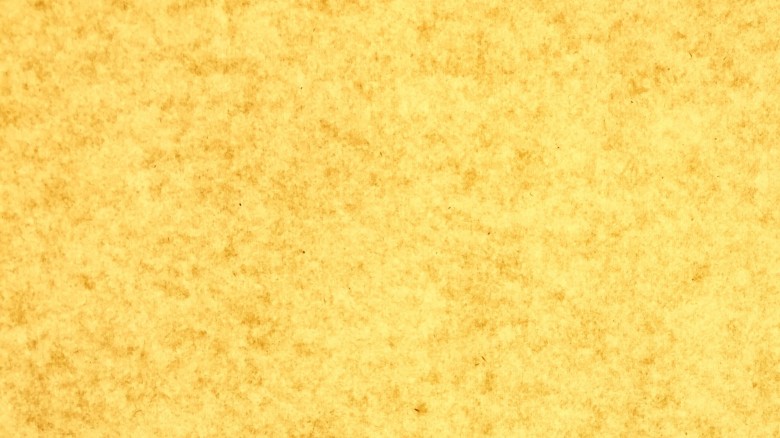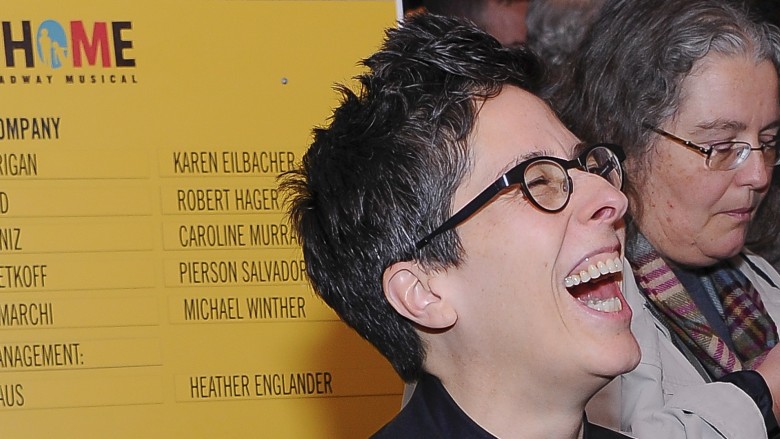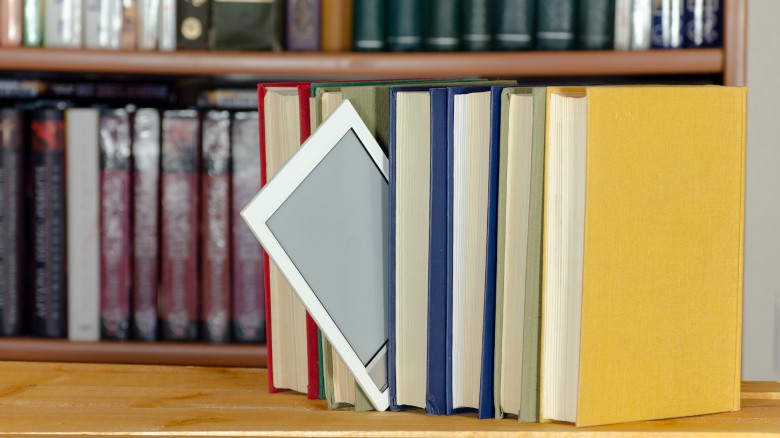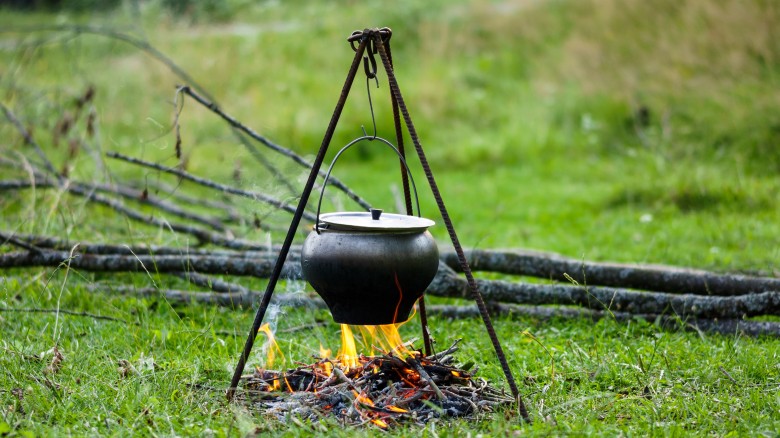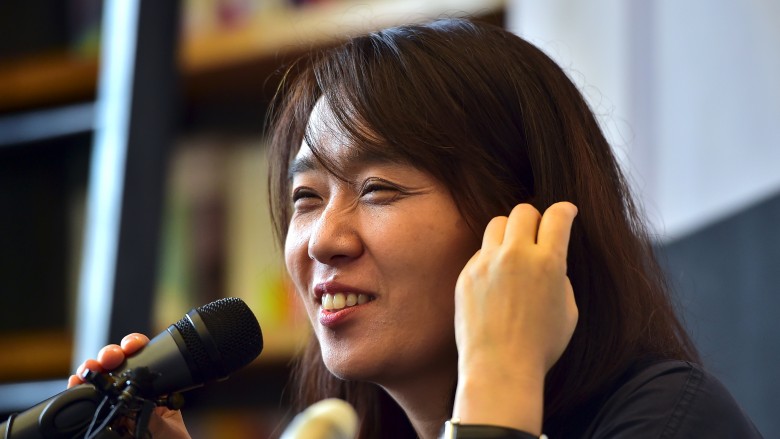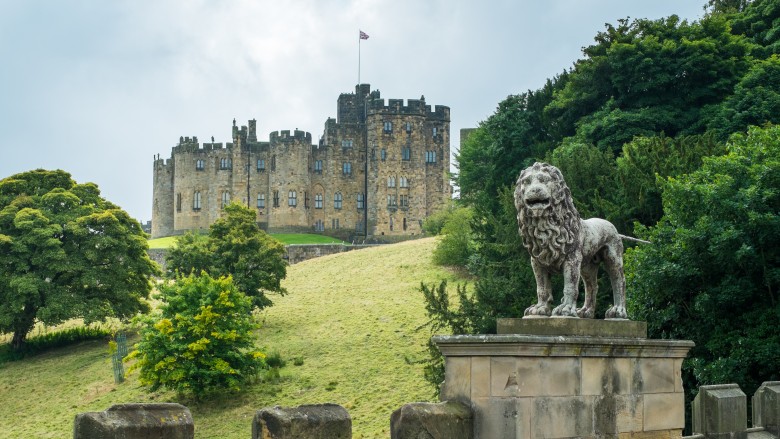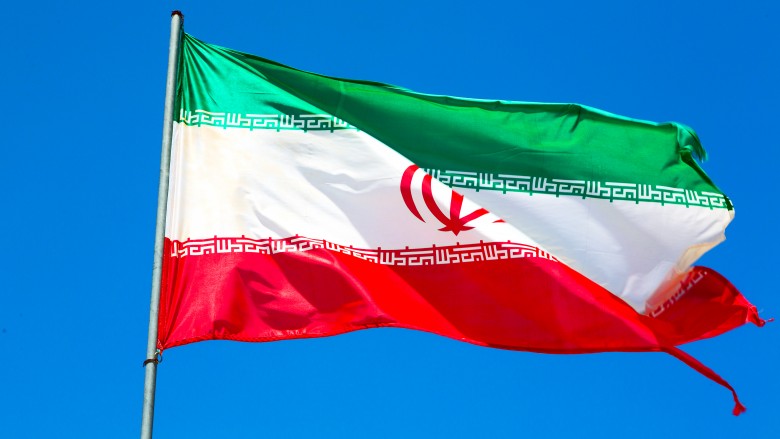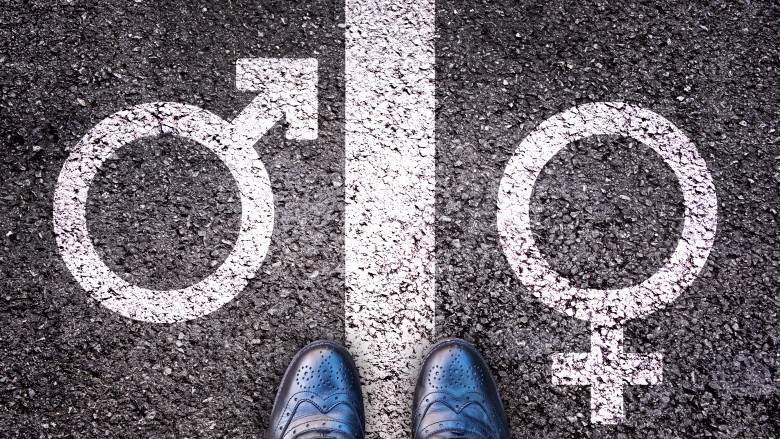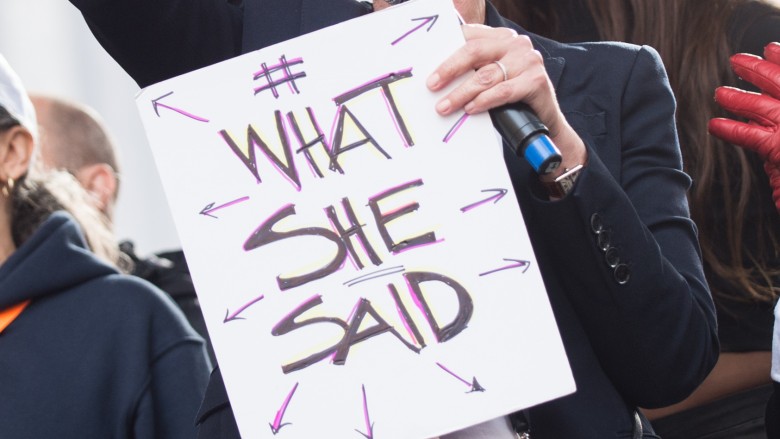Books That Every Self-Respecting Feminist Should Read
"The right book at the right moment might change everything." This is an excerpt from Changing My Mind, an essay collection by Zadie Smith. Zadie Smith is a brilliant, gorgeous, elegant, unforgettable writer and indomitable feminist, and in this quote she is particularly prescient. Books have the power to inspire a movement, educate a lone maverick, or grab an entire generation's imagination by the collar and throw it directly through a glass ceiling.
More than 50 years ago, Betty Friedan released her galvanizing masterwork, The Feminine Mystique. This well-researched take-down piece on the cult of 1950s housewife domesticity is widely credited for launching the "second wave" of American feminism, which you probably know as "the women's liberation" movement of the 20th century.
I first read Betty Friedan in college circa 2002 when, just coming out of high school, I still thought "feminism" meant female chauvinism that was to be avoided. I read Friedan again (and many other vital feminist manifestos) more than a decade later as I studied for my PhD in literature and feminist topics — this time as a wife myself, a soon-to-be mother of a daughter, and a ride-or-die feminist badass to the core. We're in the fifth wave of feminism now, folks, which is wide and varied enough to encompass both the relatively buttoned-up Pantsuit Nation ladies, as well as the balls to the wall Pussy Riot types (heck yeah), but especially strives to achieve intersectionality — meaning an understanding of how "women's overlapping identities — including race, class, ethnicity, religion and sexual orientation — impact the way they experience oppression and discrimination."
Are you one of these women? One that's awake enough and audacious enough to call yourself a feminist? Then consider these books, old and new, required reading. Support your fellow badass feminists and be ready to school some haters on the basics of queendom.
Women, Race and Class by Angela Y. Davis, 1981
If it ain't intersectional, it ain't feminism! None of us would be smart enough to understand how true that is if it weren't for Angela Davis' brilliant book on the matter. From dismantling patriarchal and classist myths about hard work vs. privilege to shutting down the unsubtle racism of whites only feminism, Davis has been cutting down mansplainers since before you were born. So take this tome from small times to heart and learn your wymyn's history.
We Should All Be Feminists by Chimamanda Ngozi Adichie, 2014
Smart, funny, topical, to-the-point. Author Chimamanda Ngozi Adichie gave a much-beloved TED Talk negotiating a contemporary point of view on gender, race, nationality, love, feminism, etc., and it turned into this book. This is a great one to give to your friend who says she "doesn't need feminism" when you suspect she doesn't quite understand it.
Americanah by Chimamanda Ngozi Adichie, 2013
Another one by Chimamanda Ngozi Adichie? Yep, she's that good. And in her second novel, Americanah, we can see a lot of the theory outlined in We Should All Be Feminists put into application in the "real world." An intersectional feminist contemporary love story in a globalized world? Put it in your shopping cart.
The Golden Notebook by Doris Lessing, 1962
Our dear former President Obama saw fit to include this feminist bible in a list of books he'd like to recommend to his daughters. And what's that old saying again? If t's good enough for the Obamas, it's good enough for us. This mid-century novel in four sections follows the main character's four different notebooks in which she compartmentalizes the central issues of her life. In a black notebook she writes about racial experience, in a red one about her politics, in a yellow one she writes a novel with a female protagonist, and in a blue one she keeps her diary. The style of the writing isn't always my absolute favorite, but the ideas and mechanics are masterful. Finally, as the main character feels she is losing her mind, she tries to put all the stories together.
Sister Outsider by Audre Lorde, 1984
Anything by Audre Lorde should be required reading for the intersectional feminist. I read a lot of her poetry in college and didn't love the aesthetic, but that's because I was being a jackass. Lorde's words are so essential, passionate, and true that they don't have time to look pretty. This collection of essays and speeches by Lorde, a black lesbian, poet, thinker, and activist, deserves a place on your feminist reading list.
Shrill: Notes From a Loud Woman by Lindy West, 2016
I love Lindy West. I first connected with her cool, unapologetic, outspoken brand of thinking when she was a staff writer at Jezebel. For the past few years she has been blowing up on the scene as a writer, film critic, and feminist, and now she has written a dream anthem for the 21st century American woman. Check out Shrill: Notes From a Loud Woman before it's adapted for TV.
The Yellow Wallpaper by Charlotte Perkins Gllman, 1892
Charlotte Perkins Gilman authored more than one seminal feminist text (Herland, anyone?) but this title short story from her Yellow Wallpaper collection is one of the most accessible, and one of my favorites — and not just because I am also a crazy feminist writer with a sensible doctor for a husband just like the main character. Have you heard of the concept of "female hysteria" as a medical condition diagnosed to women by their male doctors in the late 19th and early 20th centuries? Feeling dissatisfied with your married life? Hysterical. Depressed because all you're allowed to do is hang around the house? Hysterical. What's the treatment? Hang around the house alone and go crazy. It was called the "rest cure." The protagonist in the story is a lonely, dissatisfied housewife of a prominent doctor. Her husband thinks she's hysterical, and forces her into "rest cure" isolation. Even in the 19th century, badass ladies like Charlotte Perkins Gillman showed us how to surreptitiously undermine and resist unbalanced gendered roles and patriarchal nonsense.
The Essential Dykes to Watch Out for by Alison Bechdel, 2008
You may have heard of the Bechdel Test. Do you know where it came from? Alison Bechdel is a rad-as-hell writer, cartoonist, and graphic novelist, and she came up with the idea for a 1985 strip called "The Rule" (viewable here) for her larger comic series "Dykes to Watch Out For." Now her years of strips are collected in one "illustrated soap opera" text, The Essential Dykes to Watch Out For, which is not to be missed.
Speak by Laurie Halse Anderson, 1999
There's a widely documented phenomenon in publishing today that pretty much every demographic loves reading young adult fiction. Sometimes it's a guilty pleasure to read teen dystopian rags, and sometimes one finds a beautiful and important book about strength and resilience and finding your voice that just happens to be in the YA genre. Speak, written by Laurie Halse Anderson, can be triggering, as it deals with sexual assault, but is ultimately empowering and triumphant. Read this poignant novel and then give it to your little sister.
Lolly Willowes by Sylvia Townsend Warner, 1926
For me, this is an absolute dream book (old crones unite!). I skimmed it in grad school (sorry, Professor Howard) but dug into it in earnest a couple of years ago, and it was so rad that I felt like I had circus music playing in my head as I read it. An early 20th century maiden aunt is pitied by everyone because she's not married. Instead of becoming permanent hired help in her married sister's home, she decides to move to a small town, become a witch, make fun of her haters, and dance with the devil (literally). You do you, right?
The Vegetarian by Han Kang, 2016
Be careful with this one. It's poignant as heck, but as the New York Times puts it: "All the trigger warnings on earth cannot prepare a reader for the traumas of this Korean author's translated debut in the Anglophone world." Winner of the coveted Man Booker Prize, this book has blood, sex, dreams, meat, metamorphosis — all the trappings of a horror show, basically — but it's also whip smart in its inquiries into selfhood and identity. It may not appear traditionally "feminist" from a western perspective at first, but you better keep reading.
The Awakening by Kate Chopin, 1899
In Kate Chopin's novella The Awakening, Edna Pontellier represents a woman torn between the pressures of convention — of enacting the duties expected of her as a wife and mother in a certain time and class, and the freedom of identifying as an individual — allowing a seductive life that allows her to shirk traditional roles and responsibilities, and to be governed by her emotions. Does this sound like a familiar conundrum to anyone out there ... even 118 years later? What Edna experiences in her romance-fueled awakening is the idea that she has, and has had the capability all along, to have an individual identity outside of her husband, her children, or any particular "other." Sounds great, right? Well, if you don't know the ending, I won't spoil it for you.
Wide Sargasso Sea by Jean Rhys, 1966
Wide Sargasso Sea is a sort of retelling of Bronte's classic Jane Eyre, but from a particularly interesting angle. Do you remember how in the original Mr. Rochester (hiss, boo) kept his "crazy" wife locked alone in the attic like a prisoner while he hung out with a hot young thing downstairs in their castle? Enough of that nonsense! Rhys gives the "madwoman in the attic" a voice and a story of her own in this awesome mid-century book.
If You Could Be Mine by Sara Farizan, 2013
A young adult Iranian lesbian/trans forbidden love story? Yes, please! Sara Farizan is an Iranian-born American millennial feminist writer, and she is making her voice heard admirably. Even though the complexity of the language is accessible for younger readers, the ideas and emotions in this necessary tome are sophisticated. Give it a read.
Gender Trouble by Judith Butler, 1990
What can I say? This book is essential. Gender Trouble laid the groundwork for the concept of "gender performativity." The theory that gender is primarily a social construct is really starting to take hold of the public consciousness today, and we really must thank Judith Butler (who is still very much active on the scene) for that. A fair warning: this text is kind of brutal to wade through if you're not used to that opaque, academic theory-speak that has sometimes been en vogue, but you know what? Read it anyway, and get your life.
What she said
If you want to make a difference in the world (whatever that means), you have to know about all the times our fellow feminist queens made a difference before you were there to do it. This is by no means a complete list, since (thank goodness) the words of wise women can't be fully contained on the page. So let us know what other rad books you would recommend to a baby feminist. Share this list. Add fuel to your fire to stay passionate and awake into perpetuity. Support your fellow women. Support their work. Read, repeat, write, lend, discuss, recommend, annotate, quote, gift, and otherwise disseminate these books by brave women into the stratosphere.


